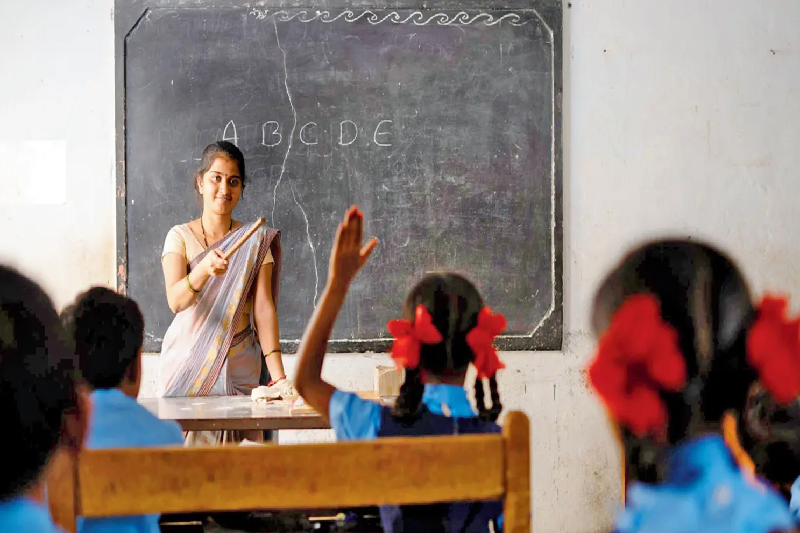
Maharashtra Teachers Urge UGC to Raise Retirement Age from 60 to 65 Years
Educators call for parity with national norms to ensure continuity, mentorship, and alignment with NEP
In a renewed appeal for parity and uniformity across the Indian higher education system, teachers’ associations from Maharashtra have urged the University Grants Commission (UGC) and the state government to increase the retirement age of degree college teachers from 60 to 65 years. The move, they argue, will bring Maharashtra in line with UGC norms and several other states that have already implemented the higher superannuation age.
Push for Uniformity Across States
The demand, led by the Maharashtra Union of Secular Teachers (MUST), gained momentum on October 25, when the association submitted a formal letter to the UGC requesting an immediate revision. The group contends that Maharashtra’s decision to continue retiring teachers at 60 stands in contrast to the national norm — the UGC prescribes 65 years as the retirement age for college faculty on the UGC pay scale.
While states such as West Bengal, Uttar Pradesh, Haryana, Madhya Pradesh, and Tamil Nadu have either implemented or are in advanced stages of adopting the UGC’s guideline, Maharashtra remains an outlier. Educators argue that the inconsistency not only creates inequality in employment conditions but also disrupts the flow of experience and mentorship within higher education institutions.
Addressing Recruitment Gaps and Faculty Shortages
One of the central arguments behind the demand for a five-year extension is the need to maintain continuity in the academic system. Teacher associations highlight that retiring faculty at 60 exacerbates existing recruitment gaps, forcing colleges to rely heavily on part-time or temporary faculty hired on a Clock Hour Basis (CHB).
MUST emphasised that extending the retirement age would help bridge the growing gap between senior and junior faculty, ensuring smoother knowledge transfer. “The five-year extension will help maintain continuity, address recruitment shortages, and reduce dependence on CHB teachers,” the association stated in its submission.
With the National Education Policy (NEP) being rolled out across the country, the need for experienced educators to guide institutional reforms has become more pressing. The policy’s emphasis on multidisciplinary learning, research integration, and academic flexibility demands strong leadership from senior faculty — a role that cannot be easily filled by new entrants.
The NEP and the Case for Experienced Mentorship
The implementation of the NEP has placed greater responsibility on colleges and universities to restructure their academic frameworks, promote outcome-based learning, and encourage innovation in pedagogy. In such a transition, the role of senior educators is pivotal.
According to MUST, older faculty members not only bring years of experience but also possess institutional memory essential for navigating systemic change. Their mentorship can shape younger teachers’ professional development and sustain academic standards. By allowing them to serve until 65, institutions can benefit from a balance of experience and youthful energy within the teaching community.
Voices from the Academic Community
Prof. Dr. Vijay N. Pawar, founder-president of MUST and a Senate Member at the University of Mumbai, has been a key voice in this ongoing campaign. He reiterated the need for uniformity across the country, stating,
“There must be uniformity in higher education across India, which includes parity in service conditions of professors. These conditions include the age of retirement. If the UGC prescribes 65 years, it should be followed nationwide.”
Dr. Pawar also noted that the demand is not new — the group had previously written to the Maharashtra government in 2022, but their appeal went unanswered. He emphasised that the lack of continuity in faculty has created a “disconnect between the older and newer generations of teachers,” weakening the academic ecosystem.
“With the NEP rollout, experienced teachers must stay on longer to guide the system,” he added, underscoring that extending the retirement age would ensure better mentoring and institutional stability.
Comparative State Policies and National Context
The UGC’s directive to raise the retirement age to 65 years was issued to create a uniform service structure and address the shortage of qualified faculty across India’s higher education institutions. While most central universities and many states have already adopted the change, Maharashtra’s delay has drawn increasing criticism from its teaching community.
In states where the UGC guidelines have been implemented, institutions have reported benefits such as improved faculty retention, smoother academic transitions, and enhanced mentoring opportunities for younger teachers. The move has also been seen as a cost-effective strategy, avoiding the administrative and academic disruptions caused by frequent retirements.
Impact on Academic Quality and Institutional Stability
Experts believe that raising the retirement age can have far-reaching effects on the quality and consistency of education. The sudden exit of experienced professors often leads to gaps in teaching, research supervision, and departmental leadership. In contrast, retaining senior faculty longer allows institutions to maintain academic rigour while giving them more time to recruit and train new staff.
Furthermore, extending the service period may contribute to more productive outcomes in research and publications. Senior faculty members, who often lead funded projects and collaborate with national and international bodies, can continue to contribute to the institution’s academic reputation.
The Road Ahead
The appeal by Maharashtra’s educators reflects a broader national conversation about faculty welfare, retention, and educational reform. With the NEP’s success hinging on effective implementation at the college level, stakeholders argue that ensuring policy alignment with UGC norms is crucial.
If the UGC and the state government respond positively, the move could serve as a turning point for Maharashtra’s higher education system — providing institutions with the expertise they need during this critical phase of transformation.
For now, the teaching community waits for a concrete response from authorities. Their demand goes beyond financial or service benefits; it is a call for consistency, respect for experience, and recognition of the vital role teachers play in shaping the future of higher education.



